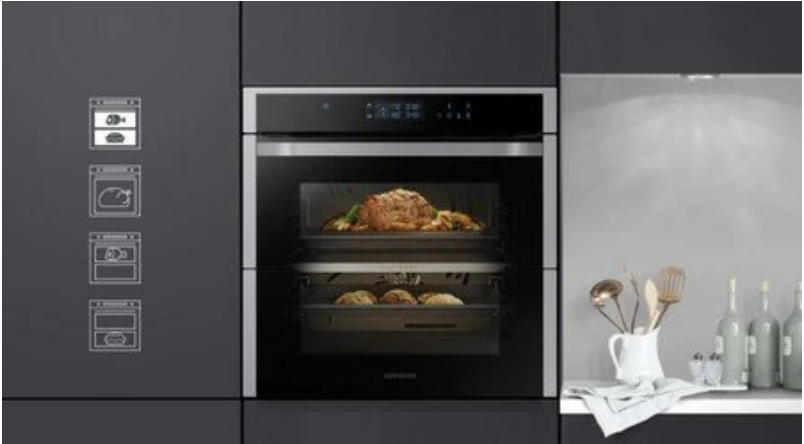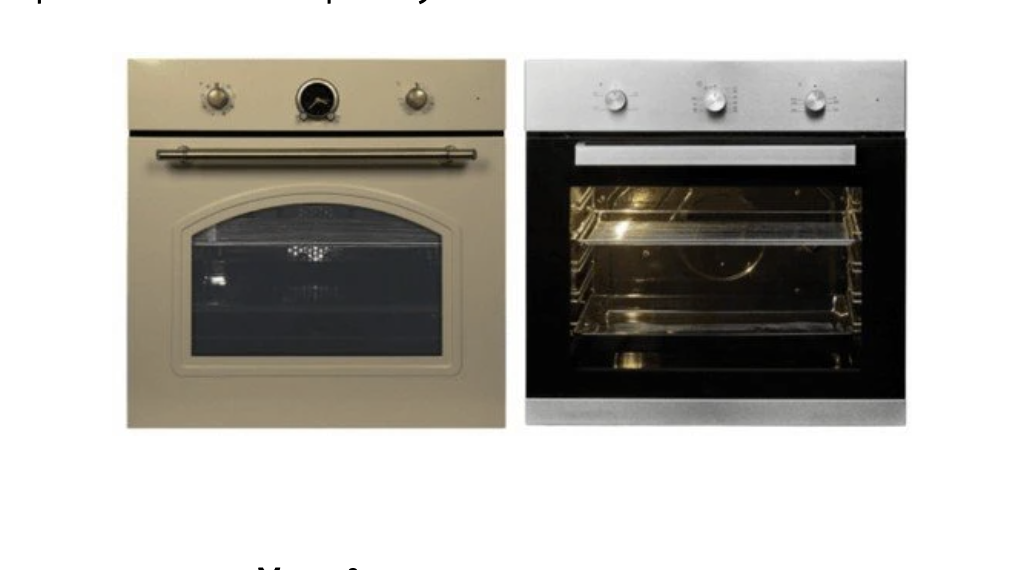
Choosing the right oven is an important step in kitchen organisation and can have a significant impact on the convenience of cooking and the quality of food. The modern market offers many options, but the main decision often comes down to choosing between a gas oven and an electric oven. Each type has its own unique characteristics, advantages and disadvantages that should be considered based on personal preferences, availability of energy resources, budget, and the types of dishes you plan to cook.
When choosing an oven, it is important to consider not only its functionality, but also how it will fit into your kitchen décor, what the installation and running costs will be, and what your preferences in cooking styles are. For example, professional chefs and baking enthusiasts may have different requirements for an oven.
In this article, we will look at the key aspects of both gas and electric ovens to help you make an informed choice that will meet your needs in the kitchen.
Comparison table showing the key technical features of gas and electric ovens
| Characterisation | Gas oven | Electric oven |
| Type of energy | Gas | Electricity |
| Heating rate | Quick | Medium |
| Temperature control | High | Medium |
| Operation in the absence of electricity | Yes | No |
| Uniformity of heating | Medium | High |
| Additional features | Restricted | Many (convection, self-cleaning, etc.) |
| Ease of use | Traditional | High (digital panels) |
| Need for ventilation | Yes | No |
| Difficulty of installation | High | Low |
| Energy consumption | Low | High |
Gas Ovens
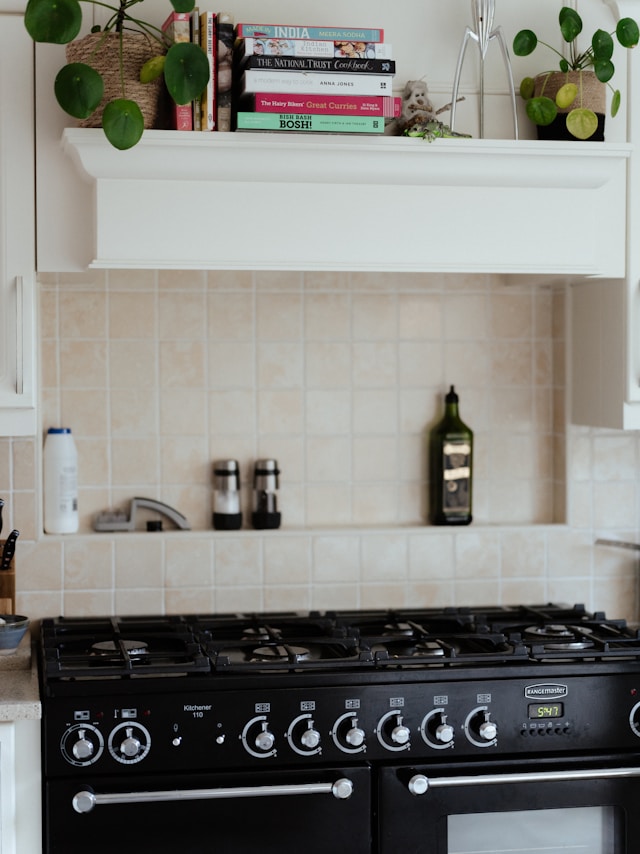
Advantages
Fast heating: Gas ovens are superior to electric ovens in terms of heating speed. This means that the time from the start of cooking until the food is ready is shorter, which is particularly important in fast-paced life or when cooking dishes that require precise cooking times.
Precise temperature control: Gas burners provide direct control over the intensity of the flame, allowing the cook to precisely adjust the temperature. This is particularly important for dishes that require precise temperature control, such as slow simmering or stewing.
Operation during power cuts: Gas ovens are not dependent on electricity, which is a significant advantage in regions with frequent power cuts or in cases of emergency.
Disadvantages
Need for ventilation: Gas ovens require good kitchen ventilation for safe use. This is to prevent the build-up of gas and carbon monoxide, which can be dangerous to health and requires the additional cost of installing an efficient extractor hood.
Installation difficulties: Installing a gas oven is usually more complicated than an electric oven and requires a gas line and professional connection. This may entail additional costs and restrictions on the choice of installation location in the kitchen.
Maintenance and safety: Gas ovens require regular maintenance to ensure safe and efficient operation. Improper maintenance or gas leaks can lead to dangerous situations, requiring special attention to safety when using these appliances.
In general, gas ovens offer high speed and precision cooking but require more care in installation, ventilation and maintenance. They are ideal for those who prefer active participation in the cooking process and appreciate traditional cooking methods.
Electric Ovens
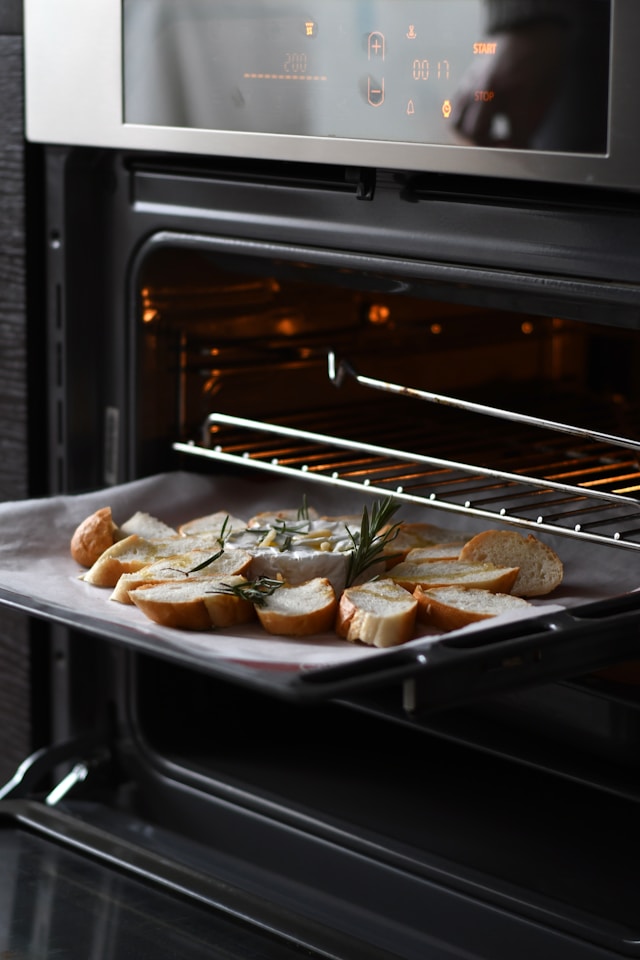
Advantages
Even heat distribution: One of the main advantages of electric ovens is their ability to provide consistent and even heat distribution. This makes them ideal for baking and roasting, as they ensure that dough is cooked and rises uniformly throughout the oven.
Additional features: Modern electric ovens are often equipped with a number of handy features such as convection which ensures even more even heat distribution, a self-cleaning function and makes the oven much easier to maintain, and various automatic cooking programmes to simplify the cooking process.
Ease of use: Electric ovens, especially modern models, are generally easier to use thanks to digital control panels, timers and preset programmes. This makes cooking more intuitive and convenient, especially for those who are new to cooking.
Disadvantages
Dependence on electricity: The main disadvantage of electric ovens is their complete dependence on electricity. In the event of a power cut, they become inoperable, which can be a problem in areas with an unstable electricity supply.
Heating time: In general, electric ovens take longer to heat up to the set temperature than gas ovens. This may slow down the cooking process a little, especially if you need to heat the oven quickly.
Energy consumption: Electric ovens tend to consume more electricity, which can affect your energy bills. This is especially true for models with high power and additional functions such as convection.
Ultimately, electric ovens are an excellent choice for those who value convenience, even cooking and a variety of functions. They are particularly suitable for baking enthusiasts and those who prefer modern technology in cooking.
Tips for shoppers
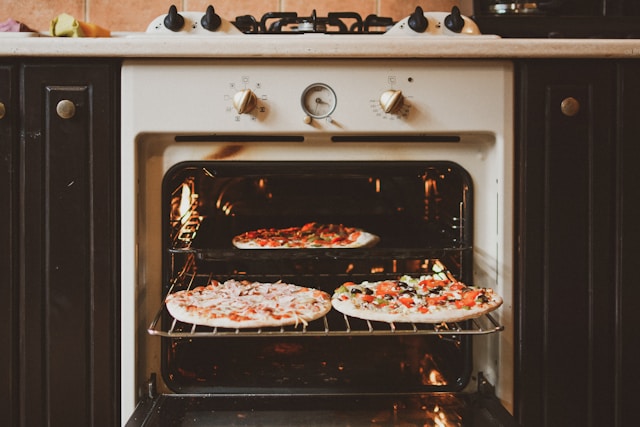
When choosing between a gas oven and an electric oven, it’s important to consider a few key aspects to ensure that your purchase will suit your needs and lifestyle. Here are some tips to help you make an informed choice:
Determine Your Cooking Preferences: If you bake frequently, an electric oven with its even heat distribution may be the best choice. For those who prefer to cook dishes that require precise temperature control, a gas oven will be preferable.
Consider Convenience and Safety: Electric ovens are generally easier to operate and require less effort to install and maintain. However, if there are frequent power cuts in your area, a gas oven may be a more reliable choice.
Budget and Operating Costs: Gas ovens are generally less expensive to operate, but can be more expensive to purchase and install. Electric ovens can have a higher initial cost and increase energy bills, especially with frequent use.
Space and Ventilation: Make sure you have enough space to install your chosen oven and consider the need for ventilation, especially for gas models.
Additional Features: Consider additional features such as self-cleaning, convection, and grill, which can make cooking and oven care easier.
Environmental Considerations: If you are aiming for an eco-friendly lifestyle, electric ovens may be preferable, especially if the electricity is generated from renewable sources.
Reviews and Brand Reputation: Read customer reviews and familiarise yourself with brand reputations. This will help you understand which models are the most reliable and of the highest quality.
Warranty and Service: Check the terms of the warranty and the availability of service. A good warranty and the availability of professional service can make it much easier to use and maintain the oven in the future.
When choosing an oven, always keep in mind your personal cooking habits, preferences and operating conditions. The right choice will not only make cooking easier, but will also bring you many years of enjoyment.
The choice between a gas oven and an electric oven depends on your specific needs and conditions. If you value fast heating and precise temperature control, a gas oven may be the best choice. However, if you value even heat, extra features and ease of use, an electric oven will be preferable. In any case, the choice should be based on your cooking style, culinary preferences and operating conditions.
Shop for a gas or electric oven and get maximum benefits with reBITme. We wish you a successful shopping experience!
